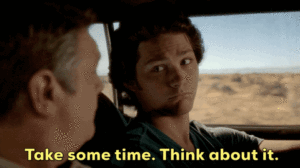
It just might be the Golden Age of Wikipedia. The world’s most famous online encyclopedia is everywhere. You can find it not only at its home website, but also in Google search results, featured snippets, knowledge panels, and People Also Ask questions; it is referenced by smart assistants like Siri and Alexa; and it’s often right in the center of breaking news and viral updates. It’s both currently trendy and evergreen. In the world of online real estate, Wikipedia is million-dollar beachfront property.
It also needs to be treated with caution and respect – especially by business owners, marketers, and public relations professionals. Why? Let’s take a look at how Wikipedia operates and what can go wrong if you ignore its content guidelines, both explicit and implied.
Table of Contents
Wikipedia is not a marketing platform
While Wikipedia does affect online reputation, it isn’t a marketing platform. It’s a free knowledge repository, one that is designed and meant to be unbiased and factual. Depending on your perspective, those qualities are either gallantly defended or viciously enforced. Take your pick.
Our opinion? It’s not that black-and-white. Wikipedia is free to edit and it attracts all sorts of users. This includes:
- Amateurs: those who think editing sounds fun or interesting, but aren’t in it for the long-haul. Most editors on the site are amateurs.
- Trolls: those who purposefully want to add absurd, misleading, or false information to pages. Fortunately, most users are not trolls and overall the Wikipedia community does not welcome them.
- Experts: these can be academics, subject matter experts, professionals, or any one else who is interested in keeping specific topics up-to-date, and also expanding the presence of those topics so that no element is left out of the encyclopedia.
- Loyalists: a step beyond an expert, the editors that we consider Loyalists are those who have found their hill on Wikipedia and will die defending their point-of-view.
As you can imagine, any editor from Amateur to Loyalist has their own biases, opinions, and perspectives on Wikipedia, its millions of articles, and how they should be updated and maintained. Some people you talk to might be kindred spirits who share your perspectives nicely and neatly. Others might disagree with you, but be respectful conversationalists, helping you to recognize your own biases as you help them recognize theirs; and finally, some might be absolutely unwilling to listen to any point of view that differs from their own.
What rules govern editors?
With this many people involved in the page creation, writing, and editing process, it’s necessary to have some rules in place to establish what goes and what doesn’t.
Wikipedia’s “fundamental principles” are:
- Wikipedia is an encyclopedia
- “It is NOT a soapbox, an advertising platform, a vanity press, an experiment in anarchy or democracy, an indiscriminate collection of information, a web directory, a dictionary, a newspaper, or a collection of source documents.”
- Wikipedia is written from a neutral point of view
- “All articles must strive for verifiable accuracy, citing reliable, authoritative sources…Editors’ personal experiences, interpretations, or opinions do not belong on Wikipedia.”
- Wikipedia is free content that anyone can use, edit, and distribute
- Any contributions can and may be “mercilessly edited.”
- Wikipedia’s editors should treat each other with respect and civility
- Wikipedia has no firm rules
- Wikipedia’s policies and guidelines are not carved in stone and interpretations can evolve over time. “The principles and spirit matter more than literal wording, and sometimes improving Wikipedia means making exceptions.”
All of these principles are important and must be considered when editing an article. For the sake of this blog post and discussion though, we want to draw attention to the last one. Wikipedia freely admits that its policies and guidelines are open for interpretation. While this can be helpful, it also means that all of those editor biases and opinions we mentioned above can lead to guidelines being enforced differently from article to article.
While you may be asking, “What’s the point then?”, it’s always important to know the policies so that you can reference them in discussions with other editors. After all, if you flat-out ignore the guidelines, that’s completely different than interpreting them in your own way and style. All policy interpretations should be focused on keeping Wikipedia encyclopedic, neutral, and reliable. This means:
- Using third-party, reliable sources
- Including only notable content
- Using neutral language
If you want to know more, read 4 Best Practices for Writing Great Content for a Wikipedia Page.
What can go wrong if you ignore the rules?

Okay, so, there are all these policies, practices, and guidelines floating around that people view as rules and will get grumpy if you ignore. What exactly are the consequences if you choose to do your own thing, regardless of these policies?
Your IP address can be banned from editing anywhere on Wikipedia
Wikipedia tracks and records all content edits. If you do not sign-in with a user profile, your IP address is logged. If you consistently ignore the rules, your IP address can be blocked.
Your user profile can be banned from editing Wikipedia
Users with a profile on Wikipedia don’t receive special treatment when compared to those editing without a profile. If they ignore the rules and choose not to work with the broader editor community, they can be banned from editing.
Your page can be tagged with nasty looking messages
These tags appear at the top of Wikipedia articles and call out your transgressions. They alert any page visitor that the content on the page might not be trustworthy. The ROI from all of the marketing or promotional edits and links that you doggedly added just dropped significantly.


You might invite the wrath of editors looking to stick it to marketing people
This is very common. There are a lot of editors that don’t think anyone in marketing can use Wikipedia responsibly. If you ignore the rules and editors suspect that you are a marketer, be ready for the consequences. Someone might take the time to highly scrutinize your page, nitpick over the application of Wikipedia rules, and start trimming away content. They may also accuse you of self-editing (COI), which creates a much more hostile editing environment.
You can get your page locked
A locked Wikipedia page can only be edited by users with a certain amount of editing experience under their belt. Unless you plan to become a significant wiki contributor, you’ll effectively be cut off from editing your page.
Your page can be added to a watchlist
There are watchlists for pages that are deemed a “problem.” The watchlist tells everyone to watch those pages closely for misdeeds.
Bottom Line

Once your accounts and/or pages are listed as potential issues, it can be hard to shake that reputation. Any and all of the above consequences can make it a herculean task to update pages with even the most benign content.
This is why we recommend approaching Wikipedia with a thoughtful strategy. You want to respect the community and use the rules to support your efforts. The alternative – pushing against the underlying principles and will of the community, which is tantamount to arguing with the internet – tends to go badly. While your actions might escape notice in the short-term, once they are noticed, the reconciliation process can take far more time and energy than you have to spare.
Save yourself the trouble, and do it right from the beginning. If you want to know more about this, give us a call.



